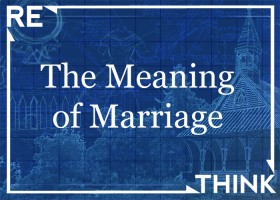CONFIDENCE IN JESUS ALONE

Written by Doug Ponder on August 25, 2013
This article is a recap of the sermon Confidence Alone in Jesus in the Philippians series.
The Most Dangerous Lies
It is sometimes said that the most dangerous lies are those closest to the truth. Perhaps this is because such lies sound good on the surface, when in fact, they are full of falsehood and all kinds of evil. The lie that the apostle Paul addresses in this portion of his letter to the church at Philippi is one of those kinds. It is the lie of that something other than the faithfulness of Jesus, in his life, death and resurrection, could ever be the basis for God’s forgiveness, love, and acceptance of anyone in every time and place, whether religious or not.
If Paul is right, then there are only two kinds of people in the world: those who put their confidence in Jesus, and those who put their confidence in themselves. The former group, those who put their confidence in Jesus, are forgiven, loved, and accepted by God—not because of anything they do, but precisely because they know that nothing they do can earn his forgiveness, love or acceptance. They know they need Jesus, and they trust him to rescue them. Everyone else, those who do not put their confidence in Jesus, are actually trusting in themselves in one way or another.
Confidence in Ourselves
Some people, for example, assume that we are “automatically” forgiven, accepted, and loved by God. Why shouldn’t God love me?” they say to themselves. Or in the snarky words of a German poet from the 19th Century, “God will forgive me; that’s his job.”
This kind of “I’m good as I am” way of thinking about ourselves is like an ostrich sticking his hand in the sand hoping that denial will make his worries go away. Our flaws, imperfections, and sins are just as real, whether we try to deny them or not. Denial doesn’t change us; it only prevents us from being changed.
Instead, everyone who is honest with themselves—gut-wrenchingly honest—knows that we are not very lovely at all. We tend to view ourselves with arrogance, selfishness, and pride. We have thoughts about others are rude, mean-spirited, and unloving. We are inclined to serve ourselves above others, always keeping our own interests in mind before the interests of others. In short, we are not very lovely at all. If anyone loves us, they must do so in spite of our many flaws and sins. This is especially true of God.
Confidence in Our Actions
Religious people, on the other hand, are fully aware of our own un-loveliness and need to be changed. They admit, too, that we are not automatically forgiven, loved, and accepted by God on the basis of who we are. Their problem, by contrast, is that they suppose they can earn God’s forgiveness, love, and acceptance in various ways. Instead of trusting that Jesus alone can make them right with God, they believe the lie that their religious activities can earn God’s favor. These sorts of errors are especially common among those who call themselves “Christians.”
For example, many such people will be sure to attend religious services, to pray regularly, to evangelize everyone, to support important causes, to participate in activism, and so forth, all the while trusting that God loves them and accepts them because of their participation in these activities. Similarly, many religious people will trust that their moral behavior, including the refusal to do certain things, earns the approval and forgiveness of God.
Other religious people fall for the lie that their knowledge about God earns his love, acceptance, or forgiveness. They suppose the facts they know about the Bible or the number of verses they have memorized have improved their standing before God. Similarly, these same people are tempted to think that because their theological beliefs are accurate, God must love them more than he loves the people who beliefs are less accurate than theirs.
Still other religious people believe the lie that their own religious experiences are proof that God loves them, accepts them, and forgives them. “I know I’m a Christian because I feel close to God,” they say. Or “I know I’m a Christian because I prayed the sinner’s prayer as a child.” Perhaps they also consider their own baptism to be proof that God loves them, accepts them and forgives them.
Lies Countered by the Gospel
Paul knows that trusting in religious activities, moral performance, theological knowledge, and religious experiences is a foolish way to go about living. He tried that once, and it ended with him persecuting his enemies to the point of death, all in an effort to please God through his personal devotion and zeal.
But something happened that Paul did not expect. While on his way to report about his successful murder of many Christians, he had an encounter with the risen Lord, Jesus, who explained that his actions were not only wrong, but worthless when it came to pleasing God. Paul, like the rest of us, is only counted righteousness through “the faithfulness of Christ” (Phil. 3:9). It is God’s way of declaring sinful people to be “in the right” on the basis of their faith in the Messiah, not on the basis of their own moral performance, whether good or bad.
This realization led Paul to look at his former life of religious activities, religious knowledge, and religious experiences as “zeal without knowledge” of the gospel (Rom. 10:2). Like the rest of religious humanity, Paul had been “ignorant of the righteousness of God, seeking to establish [his] own” by refusing to “submit to God’s righteousness” through faith in Jesus the Messiah (Rom. 10:3-4). In other words, Paul realized that he had been putting confidence in his own ability to please God, instead of God’s divine act of forgiveness through the life, death, and resurrection of the Messiah on our behalf.
Confidence in Jesus
Sometimes people ask, “What does it look like to have confidence in Jesus alone?” Quite simply, to have confidence in Jesus alone means that we refuse to believe the lies that our moral behavior, whether good or bad, will earn the forgiveness, acceptance, and love of God. That means on the very best day, when you have obeyed God in every detail, you are forgiven and loved just as much as on the day when you couldn’t stop sinning in the very worst ways. On both both days, you are forgiven and loved because of Jesus.
Still others wonder, “If I am tempted to trust in myself or my actions from time to time, does that mean that I don’t belong to Jesus? Does it mean that I don’t understand the gospel?” The answer, taken from Paul’s own hand, is no, not necessarily. Paul explains, “To write the same things to you is no trouble to me and is safe for you” (Phil. 3:1). It seems that the Christian life is one of repeated reminding ourselves of what is true: that we are forgiven, accepted, and loved by God because of our faith in Jesus. That’s it, and that’s all. We can’t add to this, and we can’t take away from it either.
None of this means that believing the gospel will have no impact on our lives. On the contrary, the more that we believe we are fully and freely forgiven and loved through the life and death of Jesus, the more we are able to experience the love of God and respond with love and obedience in return.
Doug Ponder is one of the founding pastors of Remnant Church in Richmond, VA, where he serves in many of the church’s teaching ministries. He has contributed to several published works and is the author of Rethink Marriage & Family. His interests include the intersection of theology, ethics, and the Christian life. Follow him on Twitter @dougponder.






